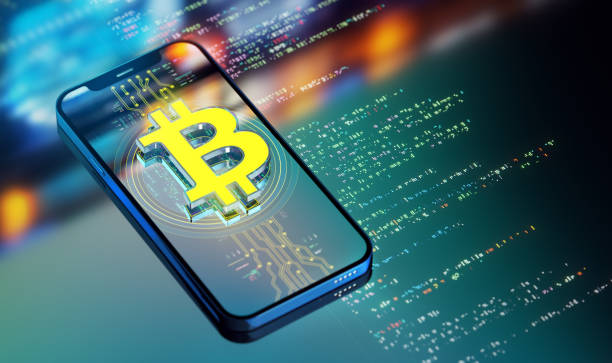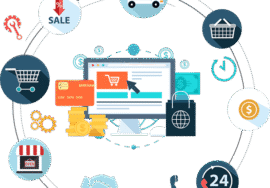
The Role of Blockchain in Mobile App Development: Opportunities and Challenges
The digital landscape is constantly evolving, and one of the most revolutionary technologies driving change is blockchain. While blockchain is best known for its association with cryptocurrencies like Bitcoin and Ethereum, its impact on industries far beyond finance is becoming increasingly significant. One area that’s been experiencing the transformative power of blockchain is mobile app development. As a mobile app development company, understanding how blockchain can be integrated into mobile applications will position you to create more secure, transparent, and efficient apps.
In this blog, we’ll explore how blockchain is reshaping mobile app development, the opportunities it presents, and the challenges developers face when integrating this technology.
What is Blockchain?
Before we dive into the role of blockchain in mobile app development, let’s first understand what blockchain is. In its simplest form, blockchain is a decentralized, distributed ledger that records transactions across many computers. This technology ensures that each record (or “block”) is secure, immutable, and cannot be altered retroactively without altering all subsequent blocks. The decentralized nature of blockchain means that it does not rely on a central authority, making it more transparent, secure, and resistant to fraud.
The Role of Blockchain in Mobile App Development
Blockchain has emerged as a game-changer in mobile app development. By integrating blockchain, developers can create apps that provide enhanced security, improved transparency, and faster transactions. Let’s take a closer look at how blockchain can be integrated into mobile app development and the advantages it brings.
Transparent Transactions and Smart Contracts
Blockchain’s transparency allows for real-time tracking of transactions, which is ideal for mobile apps that handle transactions between users, businesses, or service providers.
- Smart Contracts: These are self-executing contracts with the terms of the agreement directly written into lines of code. Blockchain-based smart contracts can be used in mobile apps to automate processes and eliminate the need for intermediaries, ensuring that transactions are executed fairly and transparently. For instance, blockchain in mobile apps could help automate loan agreements, insurance claims, or even supply chain management.
- Auditability: Every transaction made on a blockchain is recorded and can be audited. For mobile apps that require transparent processes (such as e-commerce apps), blockchain provides the ability to track every action taken by users, ensuring accountability and reducing fraud.
Improved Payment Solutions
Mobile app development companies are increasingly adopting blockchain to improve payment systems within apps. Cryptocurrencies like Bitcoin and Ethereum are becoming widely accepted, and blockchain can facilitate faster, cheaper, and more secure cross-border payments.
- Low Transaction Fees: Traditional payment systems, such as credit cards or PayPal, often come with high transaction fees, especially for international transactions. Blockchain offers a more cost-effective alternative by eliminating the need for intermediaries like banks or payment processors.
- Cross-Border Transactions: Blockchain allows users to send money across borders quickly and securely without worrying about currency conversion or hefty international transaction fees. This is particularly useful for mobile apps that offer services globally, such as remittance apps or freelance platforms.
Better Data Storage and Management
Blockchain also addresses the issue of data storage and management for mobile apps. With blockchain, developers can create decentralized storage systems that offer a higher level of security and efficiency.
- Decentralized Storage: Blockchain eliminates the need for centralized data storage, reducing the risk of data breaches. In decentralized storage systems, files are broken down into fragments and distributed across a network of nodes. Only the owner of the data has the key to access it.
- File Sharing and Validation: Blockchain-based apps can facilitate secure file sharing. For example, users can share documents or multimedia files, and blockchain can be used to validate the authenticity of those files, making it ideal for industries like real estate, healthcare, and legal services.
User Authentication and Identity Management
Blockchain can simplify and secure user authentication processes in mobile apps, particularly in industries where identity verification is crucial. With blockchain, user identities can be verified without relying on a centralized authority like banks or social media platforms.
- Decentralized Identity Verification: Blockchain enables users to create a decentralized digital identity, which is stored on the blockchain rather than on a central server. This identity can be used across multiple apps, reducing the need for multiple usernames and passwords.
- Secure Authentication: By using blockchain, mobile apps can implement biometric authentication (fingerprint, facial recognition) and multi-factor authentication (MFA) to enhance the security of user accounts.
Enhanced Security Features
Security remains one of the biggest concerns for mobile apps, especially in industries like finance, healthcare, and e-commerce. Traditional centralized databases are vulnerable to hacks, as attackers only need to breach a single point of failure. However, blockchain offers a higher level of security because of its decentralized nature.
- Data Encryption: Blockchain’s inherent encryption mechanisms ensure that data is protected, preventing unauthorized access.
- Immutability: Once data is added to the blockchain, it cannot be altered, reducing the risk of data tampering or fraud.
- Decentralization: Since there’s no central database, a hacker would need to compromise multiple nodes to alter the blockchain, making it significantly more difficult to hack.
For mobile apps that handle sensitive information, such as financial transactions, health data, or personal identification details, blockchain provides an extra layer of protection that is crucial in today’s cyber threat landscape.
Opportunities for Mobile App Developers
Blockchain technology presents numerous opportunities for mobile app developers. Let’s look at some key areas where blockchain can help developers create innovative apps.
1. Integration with IoT Devices
As the Internet of Things (IoT) continues to grow, the need for secure and decentralized communication between devices becomes even more important. Blockchain can enable secure, peer-to-peer communication between IoT devices without the need for centralized servers. This is ideal for mobile apps in sectors like home automation, automotive, and smart cities.
2. Loyalty Programs and Rewards
Blockchain’s ability to handle microtransactions and rewards systems makes it ideal for creating decentralized loyalty programs within mobile apps. For example, users could earn loyalty tokens in one app and use them in another app or store, enhancing cross-platform user engagement.
3. Supply Chain Management
Blockchain can help track products from the manufacturer to the end consumer, ensuring transparency and reducing fraud. Mobile apps can leverage blockchain to offer customers real-time updates on product locations and authenticity, especially in sectors like food, fashion, and pharmaceuticals.
Challenges of Implementing Blockchain in Mobile App Development
Despite its many advantages, integrating blockchain into mobile apps comes with its challenges. Let’s explore some of these hurdles.
1. Complexity and Cost
Developing a blockchain-based mobile app requires a deep understanding of blockchain technology, which may increase development time and cost. Not all mobile app development companies are equipped with the expertise to implement blockchain effectively.
2. Scalability Issues
Blockchain networks, particularly those using proof-of-work (PoW) consensus mechanisms, can experience scalability issues. For mobile apps that require high transaction throughput, blockchain may not be the best solution unless optimized for scalability.
3. Energy Consumption
Blockchain networks, especially those that use PoW, require significant energy to operate. This is a growing concern as blockchain applications scale, and mobile app developers need to consider the environmental impact when incorporating blockchain.
4. Regulatory and Legal Challenges
The regulatory landscape for blockchain is still evolving. Mobile app developers need to ensure that their blockchain applications comply with local laws and regulations, especially when dealing with financial transactions or user data.
Final Thoughts
Blockchain technology offers immense opportunities for mobile app development, enhancing security, transparency, and user experience. From secure payments and data management to smart contracts and decentralized identity verification, blockchain can transform how mobile apps are developed and used. However, developers must be aware of the challenges involved, such as scalability and regulatory compliance, to fully harness blockchain’s potential. As blockchain continues to evolve, its integration into mobile apps is set to play a pivotal role in shaping the future of digital services.
If you are a mobile app development company looking to stay ahead of the curve, embracing blockchain technology will provide you with the tools to create secure, transparent, and innovative apps that meet the needs of today’s digital consumers.
For More Posts Visit: latestnewsdaily





